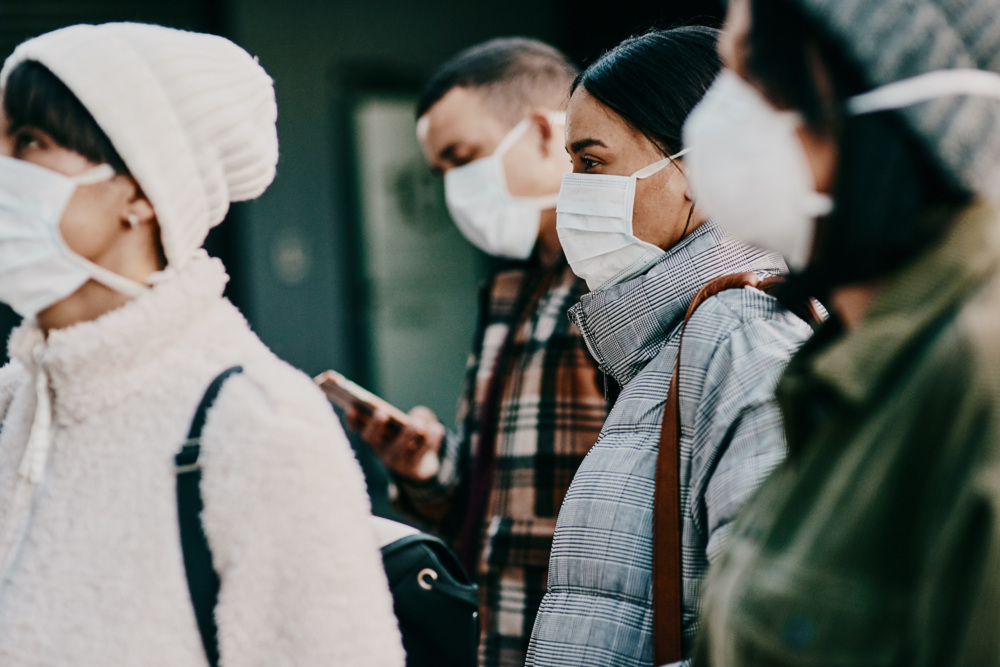
Beyond Borders, Beyond Biases: Building a Biosecure Future with Diverse Voices
NTI | bio Senior Program Officer Dr. Aparupa Sengupta on why efforts to strengthen global biosafety and biosecurity must prioritize diversity and inclusion.
Atomic Pulse
Beenish Pervaiz,
a graduate student in International Policy Studies at Stanford University, just
finished a summer internship at the Nuclear Threat Initiative through
Stanford’s Freeman Spogli Institute (FSI). Beenish assisted with projects
across the organization but worked most closely with Dr. Beth Cameron, senior
director of Global Biological Policy and Programs at NTI.
Below is a blog
post Beenish wrote for FSI, adapted for Atomic Pulse.
The opportunity
to travel 7,000 miles from Pakistan to study at one of the world’s best
universities has been a life-changing experience that has further empowered me
to work on international security issues. This summer, as part of a fellowship
with Stanford University’s Freeman Spogli Institute (FSI), I worked in
Washington, DC with the Biosecurity Program team at Nuclear Threat Initiative. Before
this internship, my work typically centered on traditional security threats
such as nuclear proliferation or terrorism. Through NTI, I discovered that global
security encompasses far more. The field of global health security has
tremendous potential to save human lives and bring about impactful change.
According to a statistic from the U.S. Centers for Disease Control and
Prevention, 70% of countries are still not properly prepared to address
pandemic threats, and most are from the developing world, which is the most
vulnerable to these outbreaks.
Here’s why I strongly believe the developing
world should make health security a priority:
1) We are self-medicating
ourselves into getting more sick
In many parts of
the developing world, the ability to purchase antibiotics without a
prescription is the norm, and consumers enjoy the short-term benefits of using
antibiotics. Unfortunately, this trend is becoming a global crisis as the vast
majority of antibiotics people use are gradually losing effectiveness against
infectious diseases. According to one review of antimicrobial resistance (AMR)
by the United Kingdom, 10 million lives and $100 trillion are projected to be
lost by 2050 as a result of AMR.
The bitter truth
is that the burden of increased infections will fall on the developing world as
many developing countries lack the proper diagnostic capabilities and
infrastructure to address these concerns.
2) Global
pandemics are getting faster and more furious
Following the
devastating Ebola crisis in 2014, developing countries were left wondering if
they have the capacity to survive something like it in the future. I had the
opportunity to experience first-hand the United Nation’s frantic effort to set
up the United Nations Mission for Ebola Emergency Response (UNMEER). Every day,
representatives from Liberia, Sierra Leone, and Guinea would warn of the
climbing death tolls. While the international response eventually picked up, it
was slow to come.
There are
multiple lessons to be drawn. The first is that while international support is
necessary, it is not sufficient. In the long term, there is a need to build healthcare
capacity in developing nations and that is a process that must be led by the
countries themselves. The effort can only be truly impactful if they have
national policy makers and change-makers in both the health and security
ministries who can proactively maintain momentum. As in the case of Ebola, if neighboring
countries impose a blanket travel ban, it is challenging for help to come in
from the outside. Hence, change must begin at home.
3) Terrorists and criminals are watching closely
Call it biodefence, biosecurity, bio-risk management or bio-threat reduction. Whatever iteration makes the most political sense, the fact remains that degrading security situations and the rise of terrorist organizations are a concern for many developing countries like mine. Even those free from terrorism can become unregulated breeding grounds for bioterrorism or even bio crime that thrives on vulnerabilities in the security systems. The universalization of technology has made it even easier to order biological parts online, contributing to the growth of the largely unregulated do-it-yourself design labs. Looking at the scores for the limited number of countries that have gone undergone the Joint External Evaluation exercise, only 9% have any demonstrated capacity while 76% of countries have limited capacity with respect to having a whole-of-government biosafety and biosecurity system in place. The majority of these countries are developing economies.
This reality is made even more complicated by the fact that the nature of bioterrorism (while of low probability) makes it difficult for authorities to identify the actor responsible. Because the lethal nature of the threat makes it appealing to terrorists and responding to bioterrorism is challenging, the focus must shift to prevention in developing countries where facilities are poorly protected and laws and enforcement are lax. While an internationally coordinated strategy to prevent bioterrorism is still lacking, developing countries like Pakistan should make their national action plans on counterterrorism more robust and effective by accounting thoroughly for bio-threats as well.
4) Climate change is going to make it harder to stop outbreaks at the source
Climate change has resulted in a number of significant catastrophes, and the world continues to pay selective attention. Increases in temperature pose a threat to health security globally. For developing countries, this challenge is even greater because although they might not be the biggest contributors to climate change, they will bear the brunt.
Developing countries have the highest incidences of climate-sensitive diseases such as malnutrition, diarrhea and malaria. A particularly significant impact will be felt on the pathogen and vector dynamics that can indirectly exacerbate the spread of disease. This paired with the fact that developing countries have the highest population densities exposed to zoonotic diseases due to loss of tree cover is a recipe for disaster. These direct and indirect impacts on health outcomes create a significant challenge for health security and must be on the radar.
Countries with low incomes, weak health systems, and poor education systems are the most vulnerable to infection and disease. Unless health security is made a priority and a dedicated effort is made to provide clear direction for planning and investment at the national level, the future will look bleak.
5) Penny wise, pound foolish
If adequate resources are not devoted to preventing the health-security, the money needed to effectively respond to them could cripple the developing economies.
A case in point is the recent Zika scare. Researchers at the Johns Hopkins Carey Business School[1] find that the social and economic cost of Zika in Latin America and the Caribbean could cost the region between $7 billion and $18 billion from 2015–2017, while affecting some 4 million people. Strategic investments in disease surveillance, community engagement, trained epidemiologist workforce, emergency operation centers, and periodic training simulation exercises all can help save lives and reduce the financial burden in the long run.
Another success story came out of Nigeria, which was able to rely on a mobile biosafety level 1 facility to test samples in the immediate vicinity of suspected meningitis cases in a recent mystery outbreak. This is one example of how African states are learning from the Ebola experience to devote more resources to building strong laboratory and diagnostic systems that can contribute directly to the timely surveillance of and response to disease outbreaks. The economic and social costs of doing so is far less than they would be once an epidemic strikes.
6) We are the generation to shift the mentality
Working at NTI, I have come to terms with the responsibility we have as world citizens to help make a difference. Millennials are increasingly accused of having great ideas but lacking the tools to put them into effect. While the challenges may seem insurmountable, we must forsake our ability to develop and implement a shared vision of the future. As one of my favorite Richard Linklater characters sums up:
“The world might be evolving the way a person evolves. Right? Like, me for example. Am I getting worse? Am I improving? I don’t know. When I was younger, I was healthier, but I was whacked with insecurity. Now I’m older and my problems are deeper, but I’m more equipped to handle them.”
So as we get older and wiser, and issues such as health security become even more complicated, let’s not forget we can be – and must be – the agents of change that society needs.
[1] “Economic Impact Of Zika Outbreak Could Exceed $18B In Latin America, Caribbean”. 2017. The Hub. https://hub.jhu.edu/2017/05/08/zika-economic-impact-latin-america-caribbean/.
Sign up for our newsletter to get the latest on nuclear and biological threats.
NTI | bio Senior Program Officer Dr. Aparupa Sengupta on why efforts to strengthen global biosafety and biosecurity must prioritize diversity and inclusion.
NTI is working with international partners to develop a new Joint Assessment Mechanism (JAM) within the office of the UN Secretary-General to rapidly identify outbreak origins. Without the ability to quickly determine the origin of an outbreak, researchers are hampered in their ability to rapidly develop vaccines and other medical countermeasures that can slow the pace of the outbreak, ultimately saving countless lives.
NTI | bio Senior Director Nathan Paxton on using democratic collaboration to improve pandemic security


